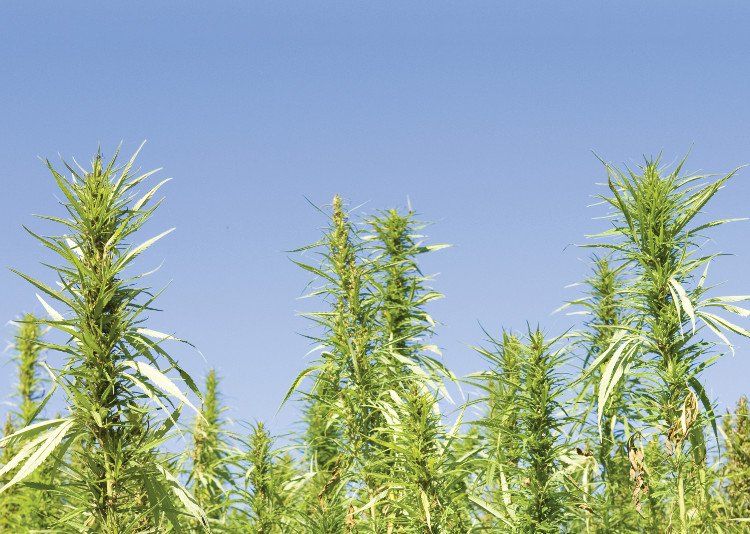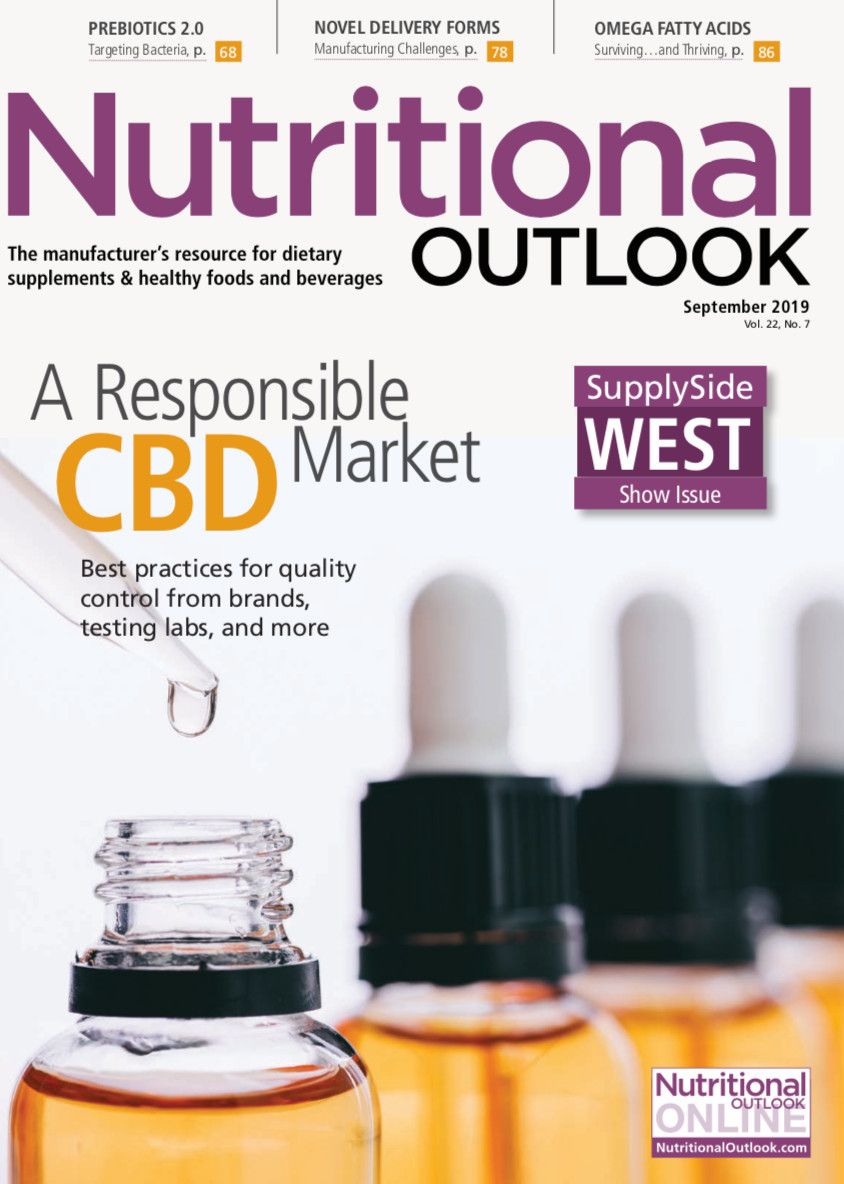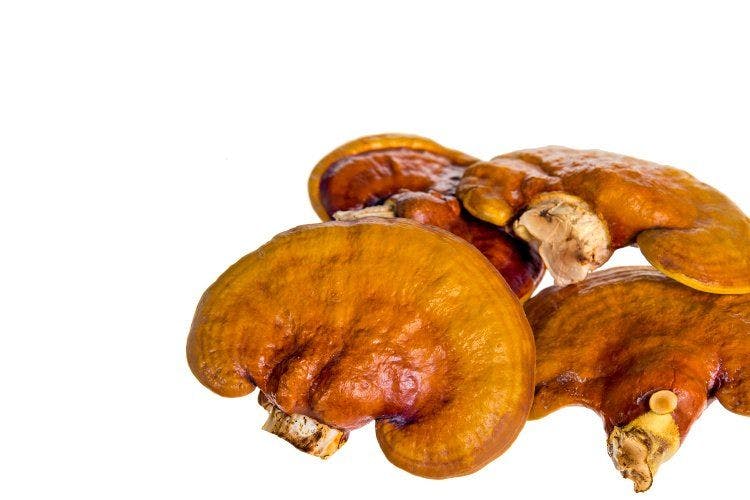What is CBD’s regulatory status, and how should companies proceed with caution? Leading industry regulatory consultants chime in.
The authors write: “It seems that foods and beverages containing CBD are likely to remain high-risk, while dietary supplements would appear to be a slightly lower-risk option for manufacturers or distributors of CBD-containing products.”
Photo © Shutterstock.com

• This article is the first in a three-part series written by the authors for Nutritional Outlook magazine.
Innovation and market trends frequently get ahead of regulations, but the blazing speed at which cannabidiol (CBD) products are being marketed in the U.S. ahead of a clear regulatory pathway may be record-setting in this regard.
Hemp Agriculture Rules Not Yet Established
While the December 2018 Agriculture Improvement Act-also referred to as the 2018 Farm Bill-removed hemp from the Drug Enforcement Administration’s (DEA) Controlled Substances list and allows for U.S. hemp cultivation, that allowance only applies to future crops: crops that can be planted, grown, and harvested only after the U.S. Department of Agriculture (USDA) promulgates the enacting regulations and policies for hemp agriculture. At the time this article was published, USDA had not yet promulgated its regulations. Despite the fact that it has been widely published that these regulations are still in the works1, there has been no apparent slowdown in the growth of the CBD sector.
A further reality that does not appear to have affected CBD sales is the fact that the 2018 Farm Bill does not legalize interstate commerce of CBD. It simply allows each “State or Indian tribe” to develop programs that will conform to the yet unwritten federal regulations.
In January 2019, shipment of hemp grown in Oregon was seized and the truck driver arrested for transportation of an illegal substance in Idaho, a state which has not participated in the federal hemp program. As of this writing, the case is under appeal after a judge ruled that the hemp being transported in January 2019 could not have been produced under the 2018 Farm Bill, whose rules have not yet been written.2 However, in late May 2019, USDA’s General Counsel, Stephen Vaden, published an opinion asserting that states could not prohibit the transportation of hemp that had been legally produced under the 2014 Farm Bill.3 However, the authors of this article point out that hemp produced under the 2014 Farm Bill is allowed for research purposes only, not for commercial purposes, so is the hemp grown in Oregon still considered ”legally” produced? The United States Court of Appeals for the Ninth Circuit will have to decide this case.
The Cloudy CBD Market
A further complication for CBD sellers is the fact that the regulatory landscape for CBD products is confusing. After passage of the 2018 Farm Bill, many in the food, dietary supplement, and cosmetic industries falsely believed-and still attest-that CBD is now legal. In actuality under the Federal Food, Drug, and Cosmetic Act, CBD is not permitted in foods, beverages, or dietary supplements. According to U.S. Food and Drug Administration (FDA) regulations, foods and beverages containing CBD are adulterated unless permitted at the state level. Furthermore, CBD-containing foods and beverages may not be sold in interstate commerce.
Potential Regulatory Pathways
With respect to regulatory categories that CBD may fall into, there are a few that are relevant to the topic at hand:
New Food Ingredient
A substance that was not in the U.S. food supply before 1958 must either have generally recognized as safe (GRAS) status or be approved as a food additive. Some groups claim to have self-affirmed GRAS status for their CBD ingredients, but the publicly available data that our experienced team has been able to review to date do not appear to sufficiently meet the GRAS requirement of a “reasonable certainty of safety.”
New Dietary Ingredient
CBD is not a grandfathered dietary ingredient-an ingredient sold in the market prior to October 25, 1994, the day the dietary supplement law, the Dietary Supplement Health and Education Act (DSHEA), passed. Because of this, CBD is not permitted in dietary supplements without the submission of a new dietary ingredient (NDI) notification to FDA.
Companies have unsuccessfully tried to submit NDI notifications to the agency. In 2017, HoneyColony submitted an NDI notification for its Superior Hemp/CBD Oil. In its response, FDA rejected this CBD oil as a new dietary ingredient, citing conflict with the investigational new drug (IND) provision prohibiting CBD’s use as a dietary ingredient if it has first been investigated as a drug. (More on this below.) FDA stated:
Based on available evidence, FDA has concluded that CBD products are excluded from the dietary supplement definition under 21 U.S.C. § 321(ft)(3)(B)(ii) (section 201(ff)(3)(B)(ii) of the Act). This is because CBD has been authorized for investigations as a new drug for which substantial clinical investigations have been instituted and for which the existence of such investigations has been made public. Prior to such authorization it was not marketed as a dietary supplement or as a food.
FDA rejected a 2015 NDI notification for cannabinoids, including CBD, from Purevolution Enterprise, for similar reasons.
Is FDA’s Regulatory Stance on CBD Evolving?
In June 2018, FDA approved the CBD-based drug Epidiolex4 from GW Pharmaceuticals as a treatment for two rare forms of epilepsy. DSHEA, the law governing supplements, prohibits approved drugs or substances for which substantial clinical investigations have been instituted to be marketed as dietary supplements.
On March 28, 2019, during a Senate appropriations subcommittee hearing, then-FDA Commissioner Scott Gottlieb, MD, stated that FDA was using enforcement discretion towards CBD products already on the market but that the agency would take action against companies making drug claims. Senator Leahy asked for certainty on this approach for the industry; Gottlieb responded that there was not a “clear route short of new regulations” but that FDA was looking at “options to propose to Congress for legislation on this [topic].”
However, it has since been reported that at the May 14, 2019, Dietary Supplement Regulatory Summit-a one-day event facilitated by leading dietary supplement industry trade associations featuring updates and insights from FDA on regulatory matters-Steven Tave, director of FDA’s Office of Dietary Supplement Programs, stated that the agency hasn’t adopted a formal policy of enforcement discretion.5
At FDA’s first public hearing on CBD on May 31, 2019, “Public Hearing on Scientific Data and Information about Products Containing Cannabis or Cannabis-Derived Compounds,” acting FDA commissioner Norman Sharpless, MD, plainly stated that “under current law, CBD and THC (delta-9 tetrahydrocannabinol) cannot lawfully be added to a food or marketed as a dietary supplement.” He further stated that the agency does not have a policy of enforcement discretion with respect to any CBD products.6
During that May 31 public hearing, approximately 120 companies, organizations, and private citizens also made public comments regarding CBD. There were consistent calls for FDA to act quickly to set up a regulatory framework to police the mushrooming CBD market. Several speakers pointed to risks of an otherwise underregulated market, noting that CBD products can often be contaminated with pesticides and heavy metals and often do not contain the amount of CBD claimed on their labels. Some showed data indicating that CBD products were often of lower potency than claimed, or, conversely, some many times higher than claimed. Still other products contained significant levels of THC when they should not. Many presenters asked that FDA require good manufacturing procedures and proof of purity and potency for CBD manufacturers.
In June, the U.S. House of Representatives passed an appropriations bill “to include critical funds that would enable FDA to undertake the appropriate processes and set a safe level of CBD for consumers to use each day.” It has been reported7 that Senate Majority Leader Mitch McConnell is also interested in seeing FDA move quickly on CBD regulations. The Majority Leader stated, “Congress’s intent was clear with the passage of the Farm Bill that these products should be legal, and our farmers, producers, and manufacturers need clarity as well as a workable pathway forward regarding the agency’s enforcement…Like my constituents, I am anxious to know the FDA’s plans to ensure public access to safe CBD products.”
On July 23, 2019, FDA announced8 that the agency had sent a warning letter to a company called Curaleaf Inc. (Wakefield, MA) for illegally selling unapproved CBD-containing products. In its press release, the agency noted that a high-level working group was exploring potential pathways to lawfully market CBD products. The press release quoted FDA’s Principal Deputy Commissioner Amy Abernethy, MD, PhD, saying that the working group “plan[s] to report our progress by early this fall as we expedite our work to address the many questions about CBD. The step-wise, science-based approach we’re taking protects patients and the public health, fosters innovation for safe and appropriate products, and promotes consumer confidence.” Dr. Abernethy provided a fuller description of the working group in her July 25, 2019, testimony before the Senate Committee on Agriculture, Nutrition, and Forestry9.
Also notably, former FDA Commissioner Scott Gottlieb, MD, published an editorial in the Washington Post on July 30, 2019, that largely echoed Dr. Abernethy’s statement on the need to develop a CBD regulatory pathway but added, “The FDA is being pushed by all sides to act quickly. Meanwhile, responsible food makers waiting for regulators to address the legal and safety considerations before launching CBD products are being eclipsed by unscrupulous purveyors. Obligating the industry to do the front end of this scientific work-and sweeping the market of those who won’t-could advance a safe path and help establish the stable market for hemp-derived CBD envisioned by lawmakers. ”10
Regulatory Assessment
So, what is the regulatory status of CBD, and are we likely to see updated regulations soon? It seems that foods and beverages containing CBD are likely to remain high-risk, while dietary supplements would appear to be a slightly lower-risk option for manufacturers or distributors of CBD-containing products. We expect that it will be many months before the regulations catch up with the market. FDA would clearly have a hard time removing all CBD-containing products from the market, and yet the agency is charged with ensuring the safety of foods and dietary supplements sold in the U.S.
What should a responsible manufacturer or distributor do to ensure product safety and mitigate their regulatory risk as much as possible? The authors recommend the following steps:
- Follow state regulations on grow and transport operations
- Follow dietary supplement GMP regulations
- Test the product for purity and potency
- Label the product as a dietary supplement without implied or explicit therapeutic claims
- Clearly indicate the level of CBD on the product label
- Partner with industry groups to develop a dossier demonstrating safety for use in a future NDI notification or GRAS notification
- Prepare a plan B in the event of unfavorable changes to the regulatory situation
The key to success in any venture is to understand the various factors that could affect your business. Any products that are ingested are subject to regulation by FDA, making understanding applicable regulations crucial. In an uncertain industry such as the market for CBD-containing products, it is imperative to work with experts that can help you understand the current environment and respond to future changes.
About the authors:
As a team of experts, our companies collaborate together and are currently working with several CBD clients from seed to finished manufactured product.
Katrina Emmel, PhD, is the founder and president of analytical laboratory KemmelCal Inc. (www.kemmelcal.com). She is experienced in analytical method selection, data review, and establishing product specifications for ingredients used in foods and dietary supplements. Dr. Emmel has over seven years of experience in drafting, reviewing, and serving as an expert panelist for GRAS evaluations.
Evelyn Cadman is the owner and principal consultant for FDA Compliance Simplified (www.FDASimplified.com), offering technology evaluation, product development, and regulatory affairs services to the food, cosmetic, nutritional supplement, and biotech industries. She has worked in regulatory affairs and product development for FDA-regulated products since 1997.
Cheryl Dicks is managing partner of Live Well RACE and CBD Compliance Simplified (www.CBDcompliancesimplified.com). With over 20 years’ experience in the dietary supplement and pharmaceutical arenas, the company offers its clients support in product development, manufacturing, cGMP compliance, clinical trial development, quality management system development, and regulatory agency support and filings.
References:
- Manfre J. “CBD: A legal and regulatory update.” Natural Products Insider. Published online January 25, 2019. Accessed at https://www.naturalproductsinsider.com/herbs-botanicals/cbd-legal-and-regulatory-update
- Long J. “Fate of hemp seized by Idaho police in hands of appeals court.” Natural Products Insider. Publisher online May 15, 2019. Accessed at: https://www.naturalproductsinsider.com/regulatory/fate-hemp-seized-idaho-police-hands-appeals-court
- Miller E. “USDA General Counsel Opinion: States Can’t Prohibit Hemp Transportation.” Transport Topics. Published online May 29, 2019. Accessed at: https://www.ttnews.com/articles/usda-general-counsel-opinion-states-cant-prohibit-hemp-transportation
- FDA news release. “FDA approves first drug comprised of an active ingredient derived from marijuana to treat rare, severe forms of epilepsy.” Published on FDA website June 26, 2018. Accessed at: https://www.fda.gov/news-events/press-announcements/fda-approves-first-drug-comprised-active-ingredient-derived-marijuana-treat-rare-severe-forms
- Long J. “FDA official clarifies position on CBD-related ‘enforcement discretion’” Natural Products Insider. Published on May 17, 2019. Accessed at: https://www.naturalproductsinsider.com/regulatory/fda-official-clarifies-position-cbd-related-enforcement-discretion
- FDA speech. “Remarks by Dr. Sharpless at the FDA Public Hearing on Scientific Data and Information about Products Containing Cannabis or Cannabis-Derived Compounds.” May 31, 2019. Accessed at: https://www.fda.gov/news-events/speeches-fda-officials/remarks-dr-sharpless-fda-public-hearing-scientific-data-and-information-about-products-containing
- Weixel N. “Lawmakers grow impatient for FDA cannabis rules.” The Hill. Published online July 6, 2019. Accessed at: https://thehill.com/policy/healthcare/451652-lawmakers-grow-impatient-for-fda-cannabis-rules
- FDA Press Release. “FDA warns company marketing unapproved cannabidiol products with unsubstantiated claims to treat cancer, Alzheimer’s disease, opioid withdrawal, pain and pet anxiety.” July 23, 2019. Accessed at: www.fda.gov/news-events/press-announcements/fda-warns-company-marketing-unapproved-cannabidiol-products-unsubstantiated-claims-treat-cancer
- Congressional testimony. Abernethy A. “Hemp Production and the 2018 Farm Bill.” July 25, 2019. Accessed at: www.agriculture.senate.gov/download/testimony/abernethy-testimony
- Gottlieb S. “The CBD craze is getting out of hand. The FDA needs to act.” The Washington Post. Published online July 30, 2019. Accessed at: www.washingtonpost.com/opinions/the-cbd-craze-is-getting-out-of-hand-the-fda-needs-to-act/2019/07/30/94c8024c-b211-11e9-8f6c-7828e68cb15f_story.html

HHS announces restructuring plans to consolidate divisions and downsize workforce
Published: March 27th 2025 | Updated: March 27th 2025According to the announcement, the restructuring will save taxpayers $1.8 billion per year by reducing the workforce by 10,000 full-time employees and consolidating the department’s 28 divisions into 15 new divisions.


























